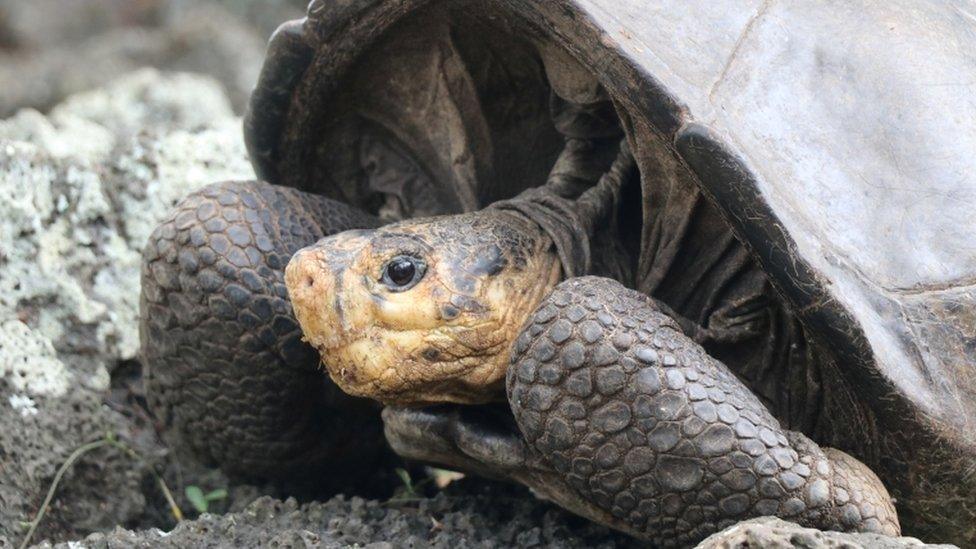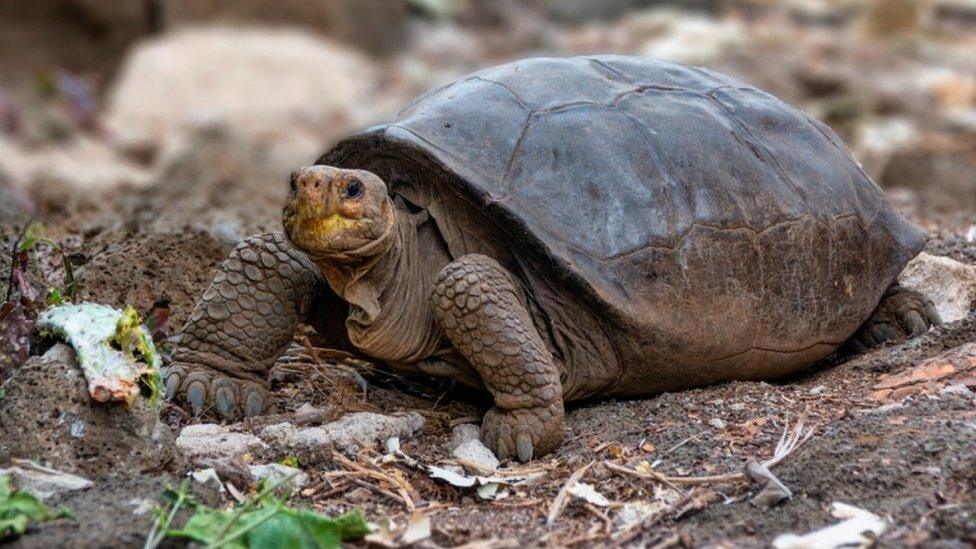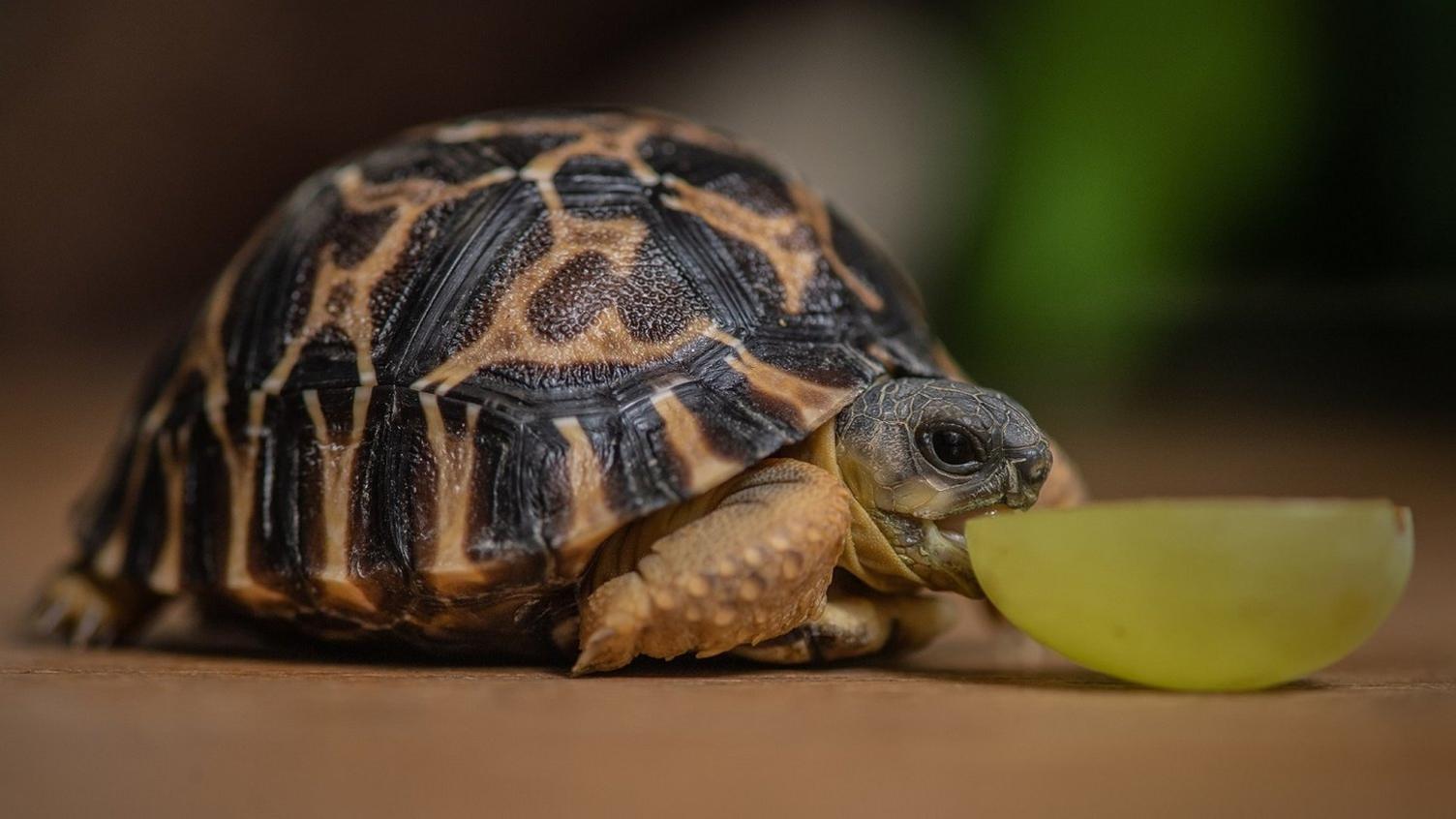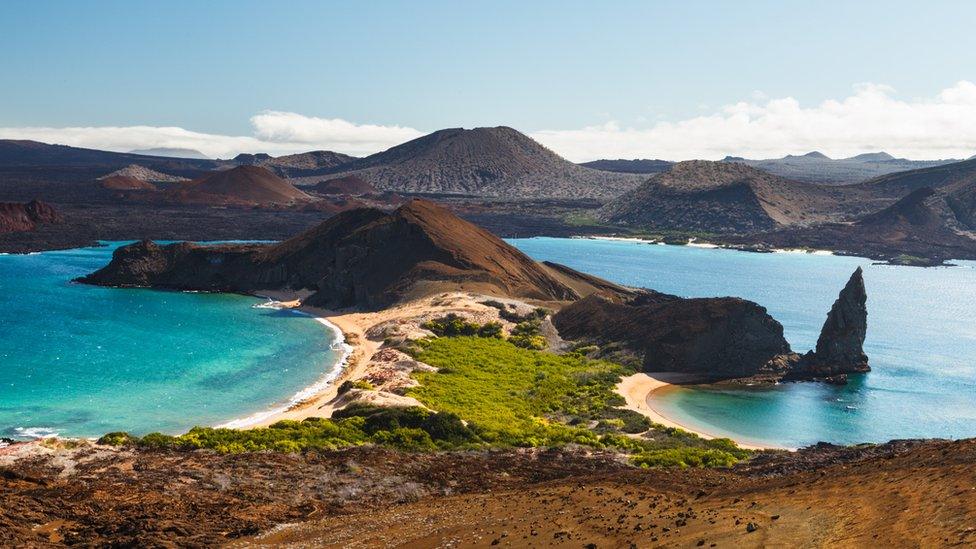Giant tortoise: An 'extinct' species has been found alive!
- Published
- comments

The species Chelonoidis phantasticus was thought to have gone extinct more than 100 years
A tortoise species thought to have gone extinct more than 100 years ago has been found alive!
Genetic tests confirmed that the giant tortoise, which was found on the Galápagos Islands, is from a species which scientists thought had died out more than a century ago.
The female reptile was first discovered during a 2019 expedition to Fernandina Island.
To prove the link between the tortoise they found and the extinct species, scientists took samples from the female and compared them with the remains of a male from the species Chelonoidis phantasticus.
Before the latest discovery, the last sighting of the species was all the way back in 1906! Scientists from the California Academy of Sciences made that finding after sailing to the Galápagos Islands to carry out a survey of its plants and animals.
The Big Question: How long would it take for a tortoise to walk around the world?
The team took the tortoise back to the academy's amphibian and reptile department and it was samples from there that allowed geneticists from Yale University to work out that the female found in 2019 is indeed a Chelonoidis phantasticus, which is also known as a Fernandina giant tortoise.
Ecuador, which the Galápagos Islands is a part of, has welcomed the discovery.
"It was believed to have gone extinct more than 100 years ago!" The country's Environment Minister, Gustavo Manrique, tweeted. "Hope is alive," he added.

The female tortoise was discovered on the Galápagos Islands
The female Fernandina giant tortoise, which is estimated to be more than 100 years old, is currently in a breeding centre on Santa Cruz Island.
Scientists have also found prints and faeces on Fernandina Island which they think suggests there could be more individuals of the species left in the wild.
Danny Rueda, who is the Director of the Galapagos National Park, said an expedition will be launched to Fernandina Island to try to locate other members of the same species.
- Published27 February 2019

- Published20 May 2021

- Published23 April 2019

